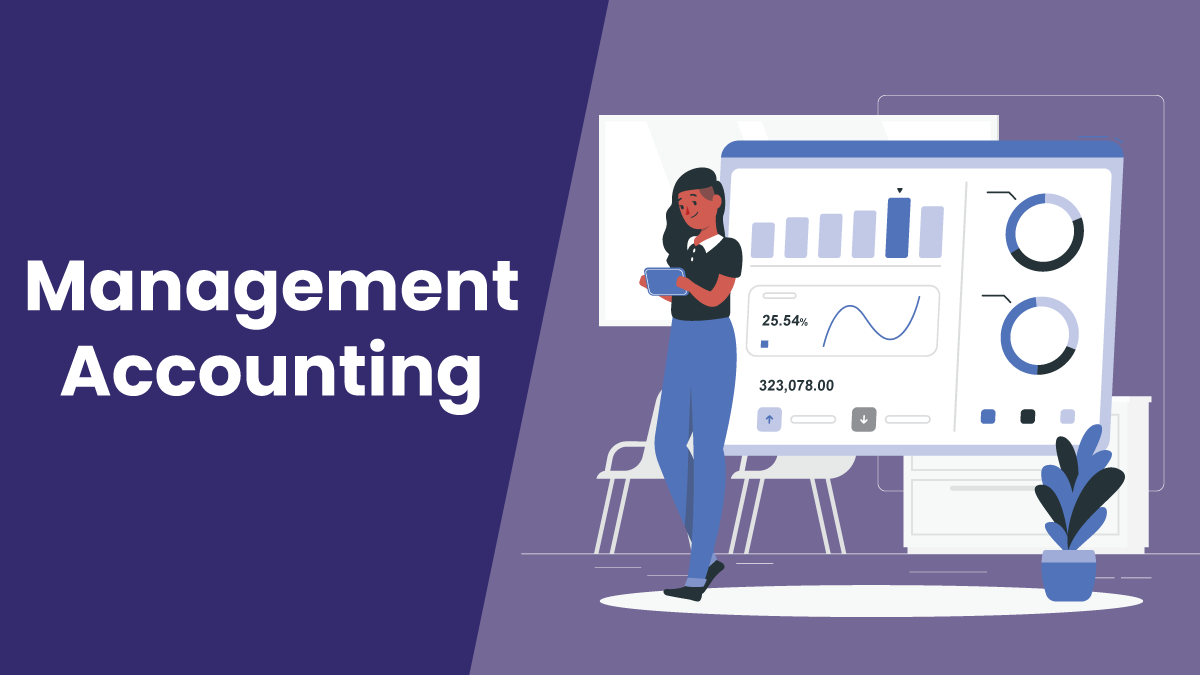Management accounting, also known as managerial accounting, is a crucial aspect of business operations that focuses on providing financial and non-financial information to internal stakeholders—primarily managers—to aid in decision-making, planning, and control. Unlike financial accounting, which is intended for external stakeholders such as investors and regulators, management accounting is used internally to improve operational efficiency and strategic planning.
This article will cover all aspects of management accounting, including its key functions, tools and techniques, benefits, challenges, and future trends.
What is Management Accounting?
Management accounting is a specialized branch of accounting that involves analyzing financial data to assist managers in making informed business decisions. It focuses on:
- Cost control and reduction
- Budgeting and forecasting
- Financial planning
- Performance evaluation
- Strategic decision-making
Unlike financial accounting, management accounting is more flexible and does not adhere to standardized reporting formats. Instead, it provides customized financial insights tailored to the specific needs of a business.
Relationship Between Management Accounting and Financial Accounting
While management accounting focuses on internal decision-making and business strategies, financial accounting is primarily concerned with preparing financial statements for external stakeholders, such as investors and regulatory authorities. Understanding both disciplines is essential for businesses looking to balance compliance with financial efficiency. Many companies integrate accounting software to streamline both financial and management accounting functions.
Key Functions of Management Accounting
1. Budgeting and Forecasting
- Management accountants develop budgets to outline financial plans for the organization.
- They also create forecasts to predict future financial outcomes based on historical data and market trends.
- Example: A retail company forecasting demand for the holiday season to ensure optimal inventory levels.
2. Cost Analysis and Control
- By analyzing costs associated with production and operations, management accountants identify areas where expenses can be reduced without compromising quality.
- Implementing cost-cutting measures like lean manufacturing or automation.
- Example: Cost accounting techniques, such as Activity-Based Costing (ABC), help businesses allocate expenses more effectively.
3. Performance Evaluation
- They assess the performance of various departments and projects by comparing actual results against budgets or benchmarks, facilitating accountability and continuous improvement.
- Example: Using Key Performance Indicators (KPIs) to measure department efficiency.
4. Decision Support
- Providing relevant financial insights, management accountants support strategic decisions such as product pricing, capital investments, and market expansion.
- Example: Deciding whether to enter a new international market based on cost-benefit analysis.
5. Risk Management
- Identifying financial risks and developing strategies to mitigate them, ensuring the organization’s long-term sustainability.
- Example: Assessing credit risk before approving supplier contracts.
Key Techniques and Tools in Management Accounting
1. Activity-Based Costing (ABC)
- Assigns overhead costs to products based on the activities required for their production, offering a more accurate cost per product.
2. Standard Costing
- Involves assigning expected costs to products and services, which are then compared to actual costs to identify variances and areas for improvement.
3. Variance Analysis
- The process of analyzing the differences between planned financial outcomes and actual results to understand the causes and implement corrective actions.
4. Marginal Costing
- Focuses on the impact of producing one additional unit, aiding in decisions related to pricing and production levels.
5. Balanced Scorecard
- A strategic planning tool that provides a comprehensive view of organizational performance by measuring financial and non-financial metrics.
The Role of Technology in Management Accounting
Advancements in technology have significantly transformed management accounting practices. Modern accounting software solutions enable real-time data analysis, automation of routine tasks, and enhanced accuracy in financial reporting. Technologies such as Artificial Intelligence (AI) and Machine Learning (ML) are increasingly being utilized to predict trends, detect anomalies, and provide deeper insights into financial data.
- ERP Systems: Integrating financial data into a single system for real-time decision-making.
- Cloud Accounting: Providing remote access to financial reports for better collaboration.
- AI & Automation: Enhancing accuracy in repetitive accounting processes.
The Role of Bookkeeping and Tax Preparation in Management Accounting
Accurate bookkeeping services are essential for effective management accounting. Proper record-keeping ensures that management accountants have access to real-time financial data for budgeting, cost analysis, and forecasting.
Additionally, tax preparation services help businesses remain compliant with tax regulations. Management accountants often work closely with tax professionals to optimize tax liabilities and ensure smooth financial operations.
Challenges in Management Accounting
1. Data Overload
With the vast amount of data available, management accountants must discern which information is relevant for decision-making.
2. Rapid Technological Changes
Keeping up with evolving technologies requires continuous learning and adaptation.
3. Globalization
Operating in multiple countries introduces complexities such as varying regulations, currencies, and economic conditions.
4. Regulatory Compliance
Ensuring adherence to ever-changing laws and standards can be challenging and resource-intensive.
Future Trends in Management Accounting
Management accounting is continually evolving, with future trends focusing on:
- Greater emphasis on sustainability reporting
- Integration of advanced analytics
- Increased use of automation and AI
- A more strategic role in guiding organizational direction
As businesses become more data-driven, the demand for management accountants who can provide actionable insights will continue to grow.
Management accounting plays a crucial role in the success of organizations by providing the financial insights necessary for informed decision-making. By leveraging various tools and techniques, management accountants help businesses plan, control, and evaluate operations effectively. As the business environment becomes increasingly complex, the importance of skilled management accounting professionals cannot be overstated.








